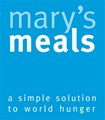Story
Scroll to foot of page for more photographs...
£13.90 feeds a single child for an entire year!
Thanks for taking the time to visit my JustGiving page.
Donating through JustGiving is simple, fast and totally secure. Your details are safe with JustGiving - they'll never sell them on or send unwanted emails. Once you donate, they'll send your money directly to the charity.
My daughter Anne is running the half marathon in Sunday's Great Scottish Run in Glasgow, Scotland. She has decided to use this event as a fundraiser for the children of Jebbeh Kiazolu School in Liberia, as they cannot rely on any other way to eat. Anne was inspired after meeting members of Auchinleck Academy's Rights Respecting School group, who are leading the sponsorship of Jebbeh Kiazolu School, and a number of classes she visited with my other daughter Eilidh a year ago.
After a twelve year gap since I ran the Glasgow half marathon in 2005, three days ago I dug out my running shoes and after some trial running at the weekend I have decided to support Anne for this great cause. I will run the 10K which is earlier on the same morning as Anne's .
Auchinleck Academy last year raised around £5000 so that the children of Jebbeh Kiazolu could be fed, and hope to continue this fantastic support, with the help of Cumnock Academy.
The target is set keeping the short time scale in mind, as this event is just six days away. For that reason, it will remain open after this date has passed to allow more opportunity of reaching the target.
Watch how you can give an amazing help with a very small donation in this short four minute animation from Mary's Meals. Paste the following link into your browser:
https://www.youtube.com/watch?v=J8mgNM8U13M
__________________________
PROFILE OF JEBBEH KIAZOLU SCHOOL
Jebbeh Kiazolu School now has 309 pupils enrolled, including 172 boys and 137 girls, taught by a total of 9 qualified teachers. There are 9 permanent classrooms at Jebbeh Kiazolu and the school has a playground where the children can play during their breaks. The school’s water source is a hand pump in the school grounds. Mary’s Meals Liberia encourages all of the schools in its feeding programme to grow a school garden. This gives the children hands-on agricultural experience and the food the schools grow can be used as ingredients for their daily school meals or can be sold and the profits re-invested back into the school itself. Jebbeh Kiazolu School has a flourishing pineapple garden, tended to by teachers and pupils.
WHAT STAFF AND PUPILS OF JEBBEH KIAZOLU SCHOOL SAY:
“Mary’s Meals is very gracious to us. The school feeding is very very beneficial to the entire school. It’s contributing highly to increased enrolment. You see the difference, like before most children were just in the community, but now they themselves tell their parents they want to come to school. Even when there’s a holiday, they want to come and their parents have to say, “Do you not know there’s a holiday today?” - Jumbo M. Johnson, Vice Principal for Student Affairs
__________________________
Varney Haines, 17 years old, describes his future ambitions: “After I finish school, I want to be a civil engineer. I want to build bridges and fix the roads. I want to stay here and build my country. And then when I know the job, I would teach other people.”
__________________________
“I love the rice because it makes me healthy. When I eat it, I get strength and energy to work. If there was no food to eat at school, I would still come, but it would take me the whole day, because I would not be feeling happy. I would find it difficult to listen to my teachers, and understand what they are saying.” - Maima Y Sesay, 21 years old, a student in Jebbeh Kiazolu School.
AND FINALLY, WHAT IT IS LIKE TO LIVE IN LIBERIA:
More than a decade may have passed since the end of Liberia’s devastating civil war, but all forms of infrastructure across the west African nation – which is ranked as the twelfth least developed country in the world – remain extremely basic, a situation which was only exacerbated by the recent Ebola crisis.
There is virtually no electricity, very little food production, heavy reliance on imports and access to education remains extremely limited. Liberia has the highest recorded percentage (62%) of primary school-aged children out of school in the world.
Girls, in particular, face great cultural barriers to attending school and gaining an education in Liberia. But, after the Mary’s Meals school feeding programme began in 2006, we have found that the assurance of a daily meal in school is an extremely effective way of ensuring that girls are sent to school by their parents, as well as boys.
